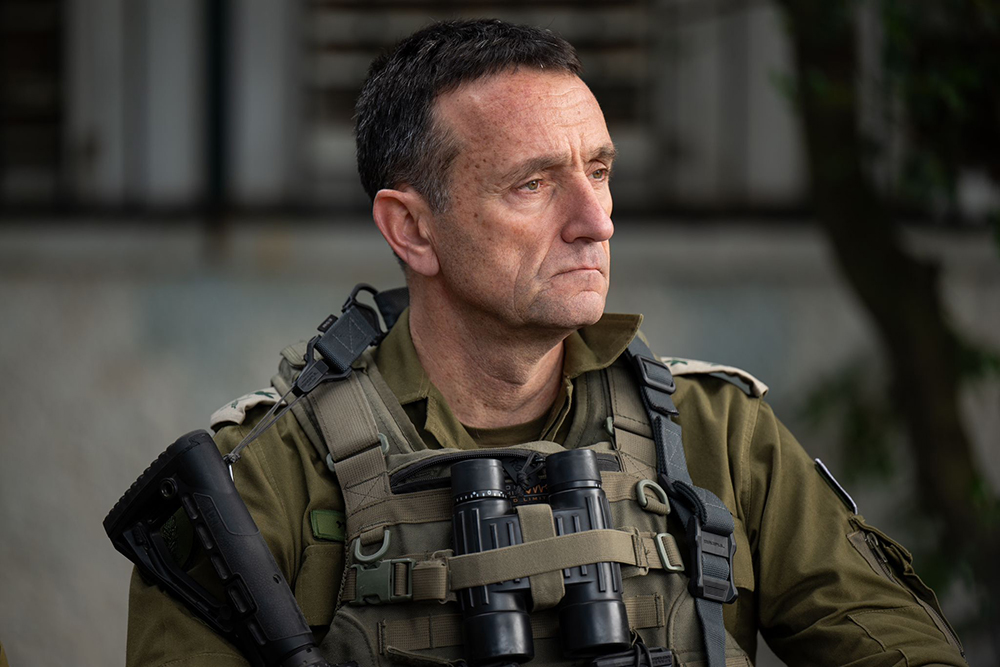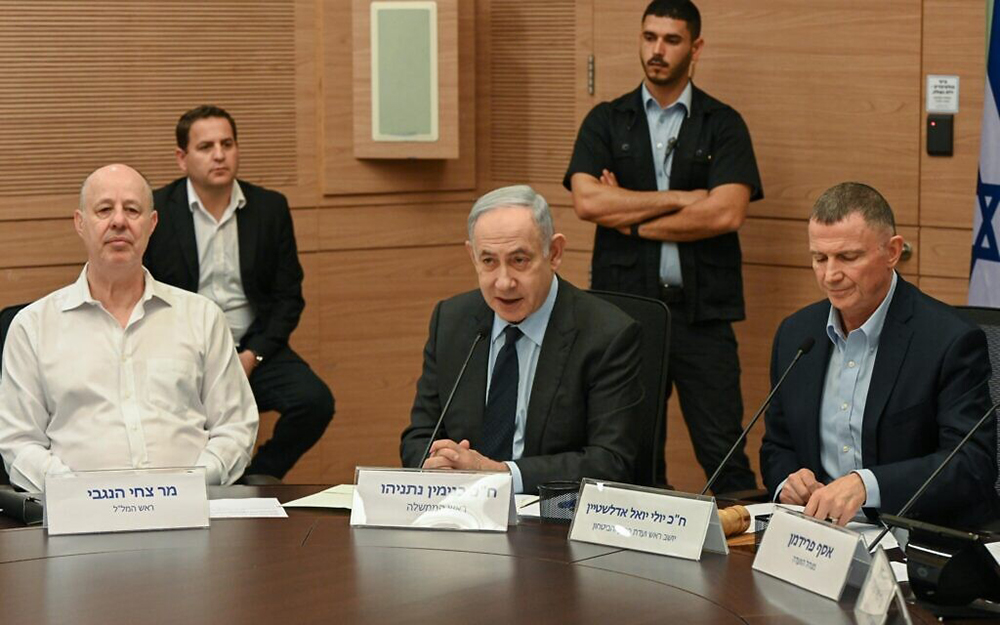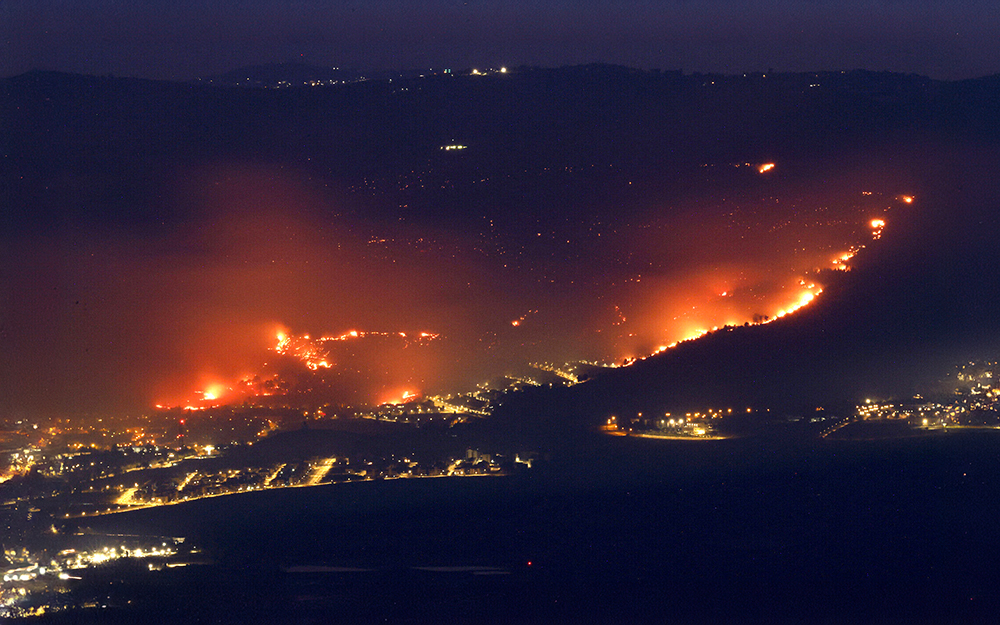|
Getting your Trinity Audio player ready...
|
Edited by: Fern Sidman
Northern Israel faced a significant crisis overnight as large fires broke out, attributed to rocket fire from Iranian-backed Hezbollah forces in southern Lebanon. The blazes, which consumed approximately 4,000 dunams (1,000 acres or 400 hectares) of land, have posed severe challenges to firefighting efforts and exacerbated regional tensions.
The fires began overnight, rapidly spreading across the northern region. According to a CNN report on Tuesday, Boris Eisenberg, the chief of the Tiberias fire station, confirmed the extensive damage. Israel Fire and Rescue Services immediately deployed multiple firefighting teams, including an aerial firefighting squadron, working tirelessly through the night to control the situation.
By Tuesday morning, firefighting efforts continued with intensified focus. Twelve teams were dispatched to Keren Naftali, where a fire had spread in multiple directions. Meanwhile, CNN also reported that ten teams were sent to the Biria Forest in the Upper Galilee area, where a falling Israeli interceptor missile had sparked another blaze.
Uri Cohen, a spokesperson for the Israel Fire and Rescue Services, highlighted the extreme conditions under which firefighters were operating. “We saw the interception and responded with increased forces and high intensity. We are operating on the spot and trying to contain the fire,” Cohen told CNN.

Several factors have compounded the difficulty of extinguishing the fires. The region has been experiencing a heatwave, with high temperatures, changing winds, and low humidity creating a highly combustible environment, as per the information provided in the CNN report. The dry conditions and shifting winds have accelerated the development and spread of the fires, making containment efforts particularly challenging. The fires have proven difficult to control, with efforts on Monday lasting many hours. CNN reported that Cohen noted the complexity of the firefighting operations, describing the situation as a “very complex extinguishing effort.”
As the fires raged, authorities began evacuating residents to ensure their safety. The mountainous Galilee region was particularly affected, with fires breaking out around noon local time on Monday, the CNN report added. Israeli police assisted in evacuating homes in Kiryat Shmona, a northern city close to the Lebanese border, where the threat was imminent.
Authorities had previously warned the public of an impending heatwave and cautioned against lighting fires in forests. Despite these warnings, the combination of rocket fire and extreme weather conditions led to the outbreak and rapid spread of the fires.
As of Tuesday, firefighting teams continued to work at high intensity, both on the ground and from the air, to contain the fires and bring them under control. Cohen expressed uncertainty about how long it would take to fully contain the blaze but emphasized the continuous and vigorous efforts being made.
“We are operating at high intensity on the ground, also from the air, in efforts to contain the fires and bring them under control,” Cohen told CNN.
On Monday, Hezbollah claimed responsibility for a “swarm of drones” targeting an Israeli military facility in the Galilee region. According to Hezbollah, this assault was a direct response to Israeli strikes that had targeted both Hezbollah forces and residential areas in southern Lebanon, as was detailed in the CNN report. The drone attack reportedly caused fires in the command center, adding a new dimension to the conflict with the utilization of advanced unmanned aerial vehicles.

This aggressive move by Hezbollah signifies an escalation in tactics, shifting from traditional rocket fire to the use of drones, which can be more precise and harder to intercept. The attack draws attention to the group’s capability and readiness to engage in sophisticated warfare, complicating Israel’s defensive strategies.
Hezbollah’s announcement also revealed that three of its fighters were killed on Monday due to Israeli attacks. This loss contributes to the mounting casualties on both sides. Indicated in the CNN report was that the Iranian-backed terror group’s continued attacks on northern Israel are framed as retaliation for Israel’s military operations in Gaza.
The cross-border hostilities that began in October have led to the displacement of thousands of Israeli residents. These individuals have been forced to leave their homes in northern Israel, seeking refuge from the escalating violence. The humanitarian toll of the conflict is significant, with families uprooted and communities disrupted.
During a recent tour of some of the most heavily damaged areas, Israel Defense Forces (IDF) Chief of Staff Major General Herzi Halevi emphasized the IDF’s readiness to escalate their military response if necessary. “We are approaching the point where a decision will have to be made, and the IDF is prepared and very ready for this decision,” Halevi stated, according to the CNN report. His comments indicate that the Israeli military is on high alert and has been extensively preparing for potential large-scale operations in the north.
Halevi highlighted that the IDF has been actively engaging Hezbollah for eight months, inflicting significant losses on the group. “Hezbollah is paying a very, very high price,” he noted, suggesting that Israel’s sustained military pressure is aimed at weakening Hezbollah’s operational capabilities and deterrence.
The IDF’s preparedness extends to a high level of training, with forces reportedly ready to transition from defensive postures to offensive operations. “We are prepared after a very good process of training – up to the level of a military exercise – to move to an attack in the north,” Halevi added, as was reported by CNN.
The assessment included an in-depth review of the firefighting efforts and the military’s strategic positioning along the northern border. Halevi and Kaspai praised the determination and professionalism exhibited by the forces who worked tirelessly through Monday night to extinguish the fires in the north, according to the i24News report.
The assessment also provided an opportunity for Halevi to engage directly with the commanders of the Golani Brigade, who are stationed on the northern frontlines.
Brigadier General Eyal Kaspai highlighted the effective collaboration between the IDF and Fire and Rescue Services, which has been crucial in managing the current crisis. “The regular collaborations with the IDF lead the preparation and readiness required of both bodies, and are implemented in practice even during wartime, maximizing the relative advantage of each system for the benefit of the State of Israel,” Kaspai noted, as per the information in the i24News report.
On Tuesday, World Israel News reported that the Lebanese government has received indications from multiple international sources suggesting that Israel is preparing for a comprehensive military operation aimed at Hezbollah. This operation is purportedly designed to halt the terrorist group’s relentless bombing of northern Israel and to reestablish Israeli deterrence, the WIN report said. This development, reported by the Lebanese newspaper Al-Akhbar, which maintains close ties with Hezbollah, has significant implications for regional stability and security.
According to Al-Akhbar, representatives from various countries have informed Lebanese officials of Israel’s imminent military plans. Notably, the UK government has reportedly specified mid-June as the anticipated timeframe for the commencement of this operation, as per the WIN report.

Further, Qatari officials, who have been mediating the ongoing Israel-Hamas hostage negotiations, have conveyed that Israel has no interest in pursuing a ceasefire in Gaza. As was noted in the WIN report, the Qataris, along with Egyptian intermediaries, were reportedly informed by Israeli officials that Hezbollah’s intensified actions on the northern front are untenable, and Israel cannot sustain this pressure without resorting to significant military retaliation.
Since October 8th, Hezbollah has intensified its attacks on northern Israel, targeting both civilian and military infrastructure. These daily assaults have created an unsustainable security situation for Israel, compelling a more decisive response, WIN reported.
A full-scale military operation against Hezbollah would likely result in significant devastation on both sides of the Lebanese-Israeli border. Hezbollah’s arsenal, which includes advanced missiles, rockets, and drones capable of reaching all areas within Israel, poses a formidable threat, as was indicated in the WIN report. Conversely, Israel’s military, known for its technological superiority and strategic precision, would aim to systematically dismantle Hezbollah’s infrastructure and operational capacity.
A Reuters report on Tuesday said that despite the escalation of hostilities in the region, Hezbollah’s deputy leader, Sheikh Naim Qassem, emphasized that the movement is not seeking to broaden the conflict but stands ready to respond to any war imposed upon it. This stance, articulated in a statement to broadcaster Al Jazeera, reflects the delicate balance Hezbollah is attempting to maintain as it navigates the ongoing crisis.
The intensification of these clashes has had profound humanitarian impacts. Tens of thousands of people living along the Lebanese-Israeli border have been forced to flee their homes, seeking refuge from the escalating violence. This displacement highlights the severe toll the conflict is taking on civilian populations, adding urgency to efforts aimed at de-escalation and conflict resolution.
Qassem’s remarks came as Israel’s war cabinet was preparing to convene to discuss the situation on the northern front. Israeli officials have echoed concerns about the unsustainable nature of the ongoing fighting. Government spokesperson David Mencer stressed that Israel is committed to ensuring the safe return of its citizens who have been evacuated from the northern regions due to the conflict, according to the Reuters report. Mencer placed the onus on Hezbollah to decide whether the situation can be resolved diplomatically or if it will necessitate further military action, reaffirming Israel’s commitment to defending its territory.
Amidst the heightened tensions, international actors have been actively seeking ways to mediate and de-escalate the conflict. The Reuters report indicated that Amos Hochstein, a senior adviser to President Joe Biden, has been at the forefront of these diplomatic efforts. Hochstein suggested that a phased land border agreement between Israel and Lebanon could serve as a mechanism to reduce hostilities. This proposal aims to address one of the core issues fueling the conflict, potentially paving the way for a more stable and peaceful coexistence.
Also on Tuesday, Israeli parliament ministers Bezalel Smotrich and Itamar Ben-Gvir publicly urged for increased military action against Hezbollah. Ben-Gvir, during a tour of the northern city of Kiryat Shmona, declared in a video statement shared on X (formerly Twitter) that peace in Lebanon is unattainable while Israeli territory is under attack and its citizens are being evacuated. “They’re setting fires here, we must burn all of Hezbollah’s strongholds, destroy them. War!” he proclaimed, as was revealed in the Reuters report. Both Ben-Gvir and Smotrich, although members of Israel’s security cabinet, are not part of the war cabinet, indicating a spectrum of opinions within the Israeli government regarding the appropriate response to the conflict.
The Israeli military reported that a “suspicious aerial target” that crossed from Lebanon had fallen in the Mount Hermon area, though no injuries were reported. In response, Israeli warplanes targeted a Hezbollah member in Naqoura, along with two other locations in southern Lebanon, the Reuters report said. Additionally, Israeli artillery struck five sites in the region.
Since the outbreak of intensified hostilities on October 7, Israeli strikes have resulted in the deaths of approximately 300 Hezbollah members and around 80 civilians. On the Israeli side, attacks from Lebanon have claimed the lives of 18 Israeli soldiers and 10 civilians, as was noted in the Reuters report.
In related developments, on Tuesday, the Times of Israel reported that the Israeli Defense Ministry announced the official signing of an agreement with the United States to procure a third squadron of F-35 fighter jets. This $3 billion deal, which includes 25 advanced stealth fighters built by Lockheed Martin, marks a major enhancement to the Israeli Air Force’s operational strength.
The delegation from Israel signed a letter of agreement in the U.S., formalizing the procurement process for the new squadron of F-35 jets. The TOI report said that the agreement stipulates that the delivery of these aircraft will commence in 2028, with batches of three to five jets being delivered annually. This phased delivery approach ensures a steady enhancement of Israel’s air combat capabilities over the coming years.
Upon completion of this deal, Israel’s fleet of F-35I fighter jets will expand to 75. Currently, 39 of the originally ordered 50 F-35 jets have been delivered, with the remaining 11 expected to arrive soon, the report in the TOI added. The additional 25 jets from the new deal will further bolster Israel’s air superiority in the region.
The entire procurement is financed by U.S. military aid, reflecting the deep and strategic defense relationship between the two nations.
Defense Minister Yoav Gallant highlighted the strategic importance of this deal, describing it as “another illustration of the strength of the strategic alliance between the U.S. and Israel and its extensive effects in arenas near and far,” as was reported by the TOI. The acquisition of these advanced stealth fighters is expected to significantly enhance the Israeli Air Force’s operational capabilities, providing a critical advantage in both defensive and offensive operations.
The F-35 is renowned for its advanced stealth technology, state-of-the-art avionics, and versatile combat capabilities. Its integration into the Israeli Air Force is a testament to the country’s commitment to maintaining technological superiority and readiness in the face of evolving regional threats.




